Prabowo’s Oversized Cabinet
A number of problematic individuals are appointed to Prabowo Subianto’s cabinet. It will be difficult for the government to be effective in its first one or two years.
maaf email atau password anda salah
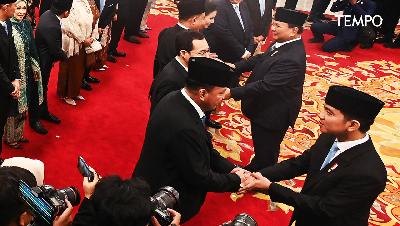
A number of problematic individuals are appointed to Prabowo Subianto’s cabinet. It will be difficult for the government to be effective in its first one or two years.
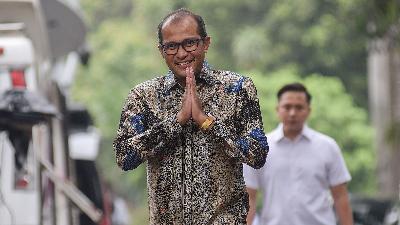
Prabowo Subianto appointed ministers and deputy ministers with problematic backgrounds in his cabinet. Several of them are closely associated with businessman Haji Isam.
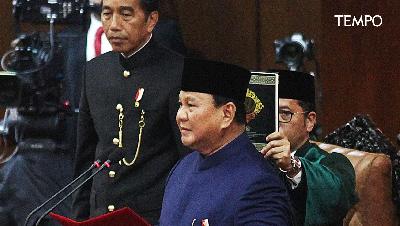
How did Prabowo Subianto decide on the composition of his cabinet? There are indications that several prospective ministers were proposed by tycoons.

Prabowo Subianto formed a large cabinet to accommodate the interests of parties, businessmen, and his supporters. Mining entrepreneur Haji Isam is suspected of proposing several ministerial candidates.
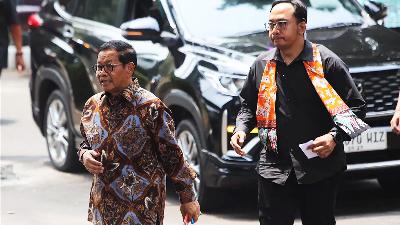
Megawati reportedly did not approve of PDI-P cadres entering Prabowo’s cabinet. She chose Pramono Anung to communicate with Prabowo.

Prabowo Subianto is to form a cabinet comprising numerous ministers. This is made possible through a revision of the law.

President-elect Prabowo’s cabinet is predicted to be filled by more than 40 ministries in an effort to accommodate the interest of the parties supporting him.

The illegal trade in rhino horns continues even though it is often foiled. This is proof of the weak protection of rhinos in their habitats.

The Melemba ethnic group in Ende, East Nusa Tenggara, contributes to conserving the habitat of the Flores eagle. It is part of the indigenous community’s wisdom.
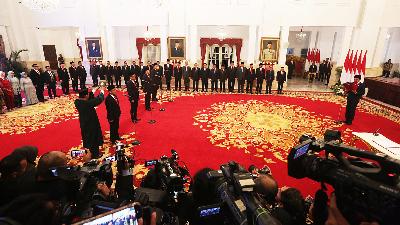
Two months before stepping down, Jokowi reshuffled the cabinet, selecting close allies of Prabowo Subianto.

The government continues with its plan to make vehicle insurance and third-party liability insurance compulsory. There is suspicion that insurance is used to collect money from the public.
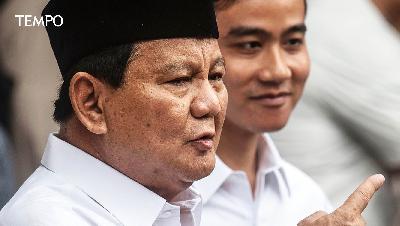
Prabowo Subianto intends to form a cabinet of 40 ministers. This will result in a bloated bureaucracy and wasted public money.
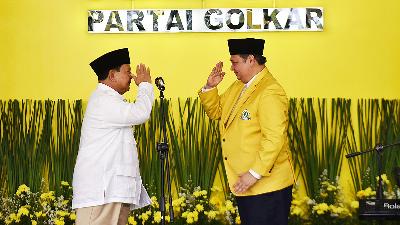
Political parties are preparing names for potential ministers in Prabowo’s cabinet. They are eyeing strategic positions.

Prabowo plans to expand his cabinet to 40 ministries. Political parties are fighting over strategic ministries. President Jokowi is also intervening.

The situation in Gaza is getting worse for newborn babies and mothers giving birth.
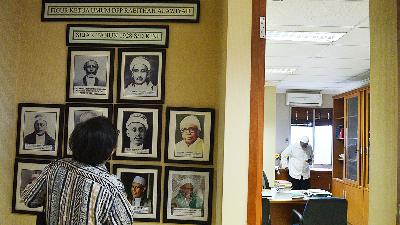
The Rabithah Alawiyah organization records the lineage of the Prophet Muhammad in the Indonesian archipelago. There are other approaches to verify the lineages of the habib.

The young man who claimed to be a descendant of the Prophet Muhammad illegally profited financially from the Rabithah Alawiyah website.

Part of the public reveres habib and sayyid as a form of adoration for Prophet Muhammad. A controversy arises regarding the lineage of Bani Alawi.
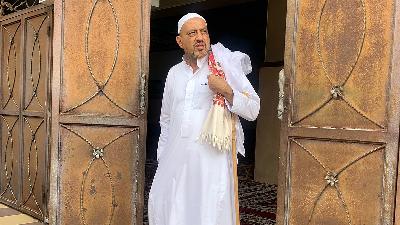
Rabithah Alawiyah is the only institution in Indonesia that keeps records of the descendants of the Prophet Muhammad. These days, people are less concerned about the details of their family lines.
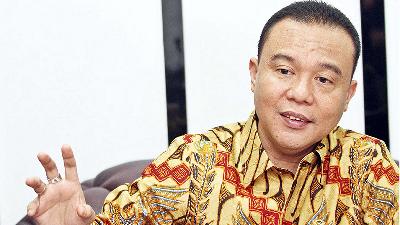
Gerindra Party Executive Chairman Sufmi Dasco Ahmad gives his explanation about the preparation of Prabowo Subianto’s cabinet ministers.
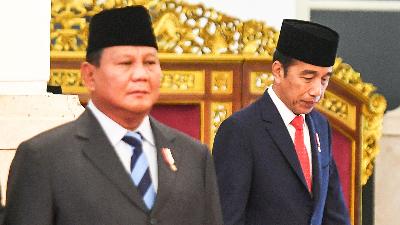
Prabowo Subianto already started to design the composition of his cabinet. There is a possibility that the number of ministers in Prabowo’s cabinet will increase.
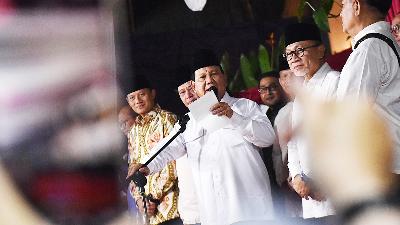
Prabowo’s cabinet is expected to be filled with many party cadres. Jokowi and other officials from the coalition of parties supporting Prabowo-Gibran already floated a number of names.
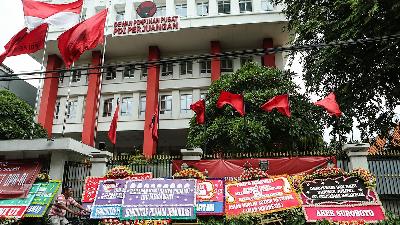
The PPP and NasDem have not expressed strong support for using the House’s right of inquiry to investigate alleged fraud in the 2024 elections. The Prabowo-Gibran camp is offering cabinet positions.
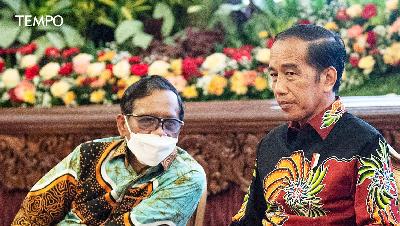
Instead of maintaining the ethics of statehood, electoral considerations are the main reason ministers are leaving or staying on in the cabinet. Pivotal was Mahfud Md’s case.
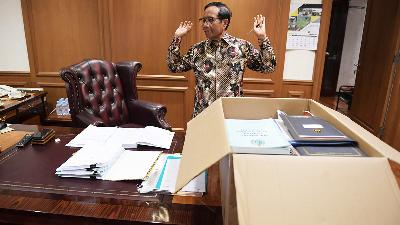
It is believed that Mahfud Md.’s resignation from the cabinet will not increase his electability. The prediction is that they could get more votes due to negative sentiment towards Jokowi.
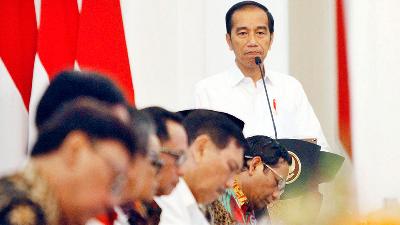
Mahfud Md. finally resigned from the cabinet. Several other ministers intend to follow suit because they are unwilling to support Jokowi’s dynasty.
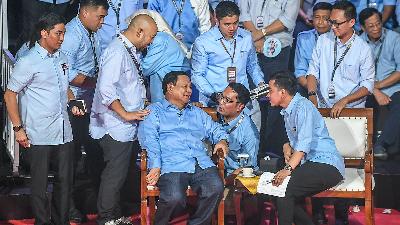
Prabowo and Gibran’s electability rates started stalling in November 2023. In several regions, support for Prabowo is eroded by the Anies-Muhaimin ticket.

What are the functions of the cabinet minister’s special staff?
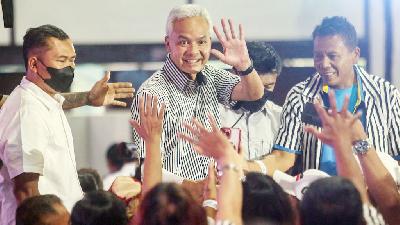
Ganjar Pranowo and Prabowo Subianto continue to make efforts to increase their electability. They are flooding social media with positive content.

The inclusion of Jokowi volunteers in the cabinet could easily be exploited for the political interests of the president. It is moving further away from a cabinet of experts.

Disputes in the forestry sector between companies and local communities continue. The situation undermines both legality and sustainability.

A group of people has taken the initiative to create programs to support people with disabilities in the workforce. Some provide advocacy while others connect workers with potential employers.

Many people with disabilities have trouble finding work. And those at work must face various hardships. Job opportunities for them at companies and government institutions still fall short.

Organizing the Sustainability Day is an effort by the Maybank Group to spread the various sustainable efforts that have been made by the company, while inviting everyone to practice sustainable efforts. #Infotempo

The health ministry has no need to be hesitant about legalizing cannabis for medicinal purposes. Legalization of the weed will solve many problems.

Marijuana’s legalization is believed to have the ability to boost Thailand’s revenues from the health and tourism sectors. The government is preparing industry-scale plantations.
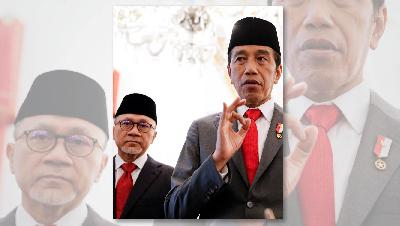
If the motive behind the cabinet reshuffle was to give political concessions, can we still hope that problems affecting the people can be resolved by replacing ministers?
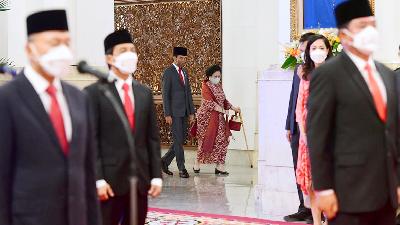
Jokowi appoints political party cadres as ministers and deputy ministers in the cabinet reshuffle. These politicians have been loyal to the President.

The Supreme Court upholds an appeal lodged by Muhammad Baihaqi, a person with disabilities from Pekalongan. The government must set an example of inclusive public services.
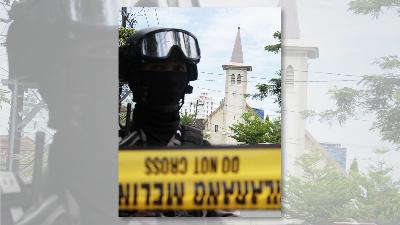
Without accountability, the police will lose public trust. People will suspect that the war on terror is being used to distract attention from other issues.
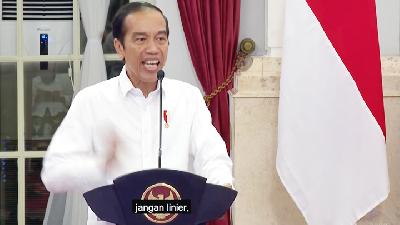
The president is unhappy with the performance of his ministers and banking institutions. There are plans to disband the Financial Services Authority and reshuffle the cabinet.
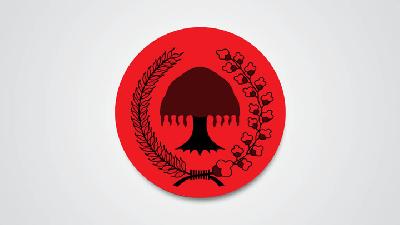
Lobbying by Golkar Party’s elite resulted in intervention by those in power. Their opportunistic habits from the past have preserved an oligarchy and political cartels.
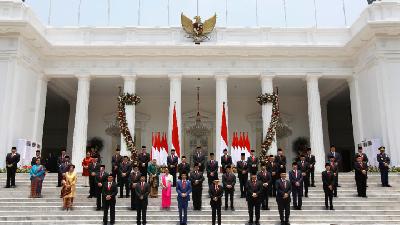
PRESIDENT Joko Widodo announced the names of 38 ministers and 12 deputy ministers who will assist him in his second term as president. Jokowi chose to reappoint several ministers who have been working with him since 2014. He again merges the research, technology and higher education ministry with the education and culture ministry; as well as the Creative Economy Agency—previously its own entity—with the tourism ministry. In the Indonesia Progress Cabinet, Jokowi embraces his contender in the past presidential election, Prabowo Subianto, as one of his helpers.
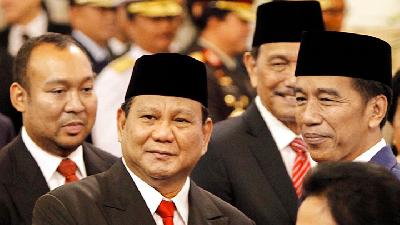
THE composition of the Indonesia cabinet that was announced by President Joko Widodo last week does not give much hope for Indonesia for the next five years.

B.J. Habibie (1936-2019), a humanist who laid the foundation of Indonesian democracy and taught the nation about the importance of having high goals.
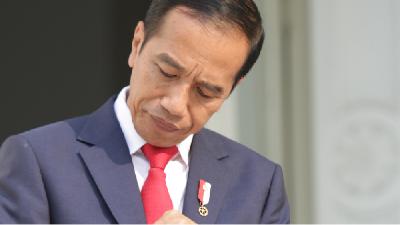
THE composition of the forthcoming cabinet is a gamble for president Joko Widodo. As the driving force for the realization of the elected president’s promises, the performance of the cabinet will determine how Jokowi is remembered in the future: as a successful leader, merely average or even a failure.
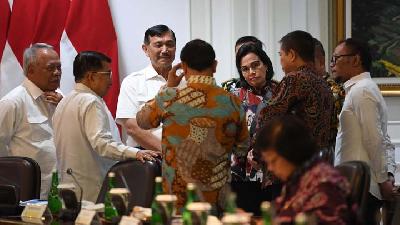
PRESIDENT Joko Widodo will be restructuring his cabinet. A number of ministries will be merged with other ministries, adopting new names. New ministries and institutions will also be formed. The President will be appointing deputy ministers for a number of ministries whose work areas cover a wide scope or ministries with big budgets.
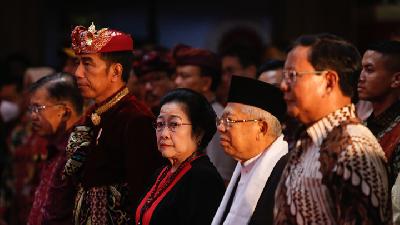
WHEN he met with cadres in the regions, Hamka Haq listened to their complaints about the quota for ministerial positions in the Working Cabinet for his party.
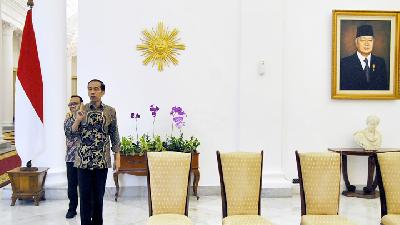
President Joko Widodo will be restructuring the cabinet in his second term in office. Some ministries will be merged, others are disbanded while new ones are formed. A young person will be appointed as minister of digital economy.

JOKO Widodo, who is likely to return to presidency, plans to reshuffle the cabinet toward the end of his first term.

The executions of Indonesian migrant workers in Saudi Arabia, without notifications to the foreign affairs ministry, are unjustifiable.

For the first time, four teams from the Arabian Peninsula are competing in the World Cup. This is a stepping stone for Saudi Arabia to develop its soccer business.

There were enthusiastic greetings for the King of Saudi Arabia, including from those with vested political interests.

Deborah Gabinetti is quick, gregarious, and emotivean immediate presence as soon as she enters a room. Yet she gives the impression of someone who is used to listening and observing. She will stop in the middle of a story to check your reaction, is not afraid to let pauses linger, tilts her head at you when curious to know what your take is on a situation and persists until she receives an answer.
When Tempo called Balinale's hotline to inquire about the festival, it was Gabinetti who answered the call. "This is Deborah. The director of the festival. Yes, I'm picking up calls," she said, laughing heartily, when asked who was on the other end of the line.

President Joko Widodo has consulted allies and friends about a second cabinet reshuffle. Some ministers may be replaced, others might be reassigned.

Last week, the banking sector began to publicize its first-quarter performance. In fact, some banks already held their annual shareholders' meeting. Although they are still optimistic of improved performance in this year's second half, the poor first-quarter results throw some doubt on whether the banking sector's recovery will actually take place this year.
In January 2016, data showed bank credit growing at just 10 percent from a year ago. With sluggish credit growth, the banks have been aggressively lowering their deposit faster than their loan rates. This explains the rise in the sector's net interest margin (NIM or the difference between deposit and loan interest rates) to 5.6 percent in January this year from 4.2 percent last year. However, this was not enough to cover the rising cost of non-performing loans (NPLs), due to slower economic growth. Sector-wide NPLs rose to 2.7 percent in January this year from 2.4 percent last year, while the sector's profitability dropped 5 percent over the same period. The worry is how far last year's weak growth will extend into 2016.

The incessant rumors about an imminent cabinet reshuffle have become very disturbing. President Joko Widodo should quickly make up his mind whether he wants to act on it or not to prevent a continuation of the current climate of uncertainty. It is the only way the government can function in a calm and focused way to achieve the goals it has set for itself.
The reshuffle has been discussed ad nauseam without any sign it will actually go ahead. What has emerged in the meantime are long arguments on its pros and cons and public squabbles among ministers, many of whom should instead be reflecting on their performance ratings distributed last December.

Saudi Arabia announced it had cut diplomatic relations with Iran on Sunday, January 3, following a protest at the Saudi Arabian Embassy in Tehran, which was triggered by the mass execution of 47 people, including Shia Muslim cleric, Nimr Al-Nimr. Al-Nimr was behind the anti-government protests in 2011.
In a press conference in Riyadh, Saudi Foreign Minister Adel Al-Jubeir said that Iranian envoys were given 48 hours to leave the kingdom. He further added that, "Saudi Arabia will not let the Islamic republic undermine its security."

When US President Barack Obama made a plea to the Muslim world in early December to confront the extremism in their midst, Saudi Arabia responded by announcing the formation of the Islamic Military Alliance two weeks ago.
"(The alliance) shows how keen the Muslim world is to fight this disease, which first affected the Islamic world, and then the entire international community," said Prince Mohammed bin Salman, Saudi Arabia's defense minister, in a press conference in Riyadh.

It is no secret that Vice President Jusuf Kalla has had differences of opinion with President Joko Widodo. Likewise, he has openly locked horns with other members of the cabinet, including with Coordinating Minister for Maritime Affairs Rizal Ramli who was appointed last August. Not surprisingly, the Jokowi-Kalla government often faces political tensions and problems of coordination.
Lately, Kalla seems to have lowered his political 'pressure'. In an interview with Tempo at his office, Kalla, who also served as vice president under President Susilo Bambang Yudhoyono from 2004 to 2009, said that differences among cabinet ministers had been resolved.

President Joko Widodo welcomed Saudi Arabia's Foreign Minister Adel bin Ahmed al-Jubeir during his visit to Indonesia on October 20. "Both countries are committed to strengthening our cooperative agreement," said Foreign Minister Retno Marsudi, adding that al-Jubeir's visit was a follow-up of Jokowi's visit to Saudi Arabia last September.
Retno said that as an outcome of the meeting, Indonesia and Saudi Arabia have agreed to pursue further cooperation in four different sectors: refineries, crude oil, petrochemicals and storage facilities. She said an Indonesian delegation would depart for Saudi Arabia in the next four weeks to secure the agreement.

Hana Salomina Hikoyabi is an activist from Papua, who uses her bureaucratic savvy to get things done. She was vice chair of the Papua People's Assembly during the 2006-2011 period and is currently the head of the Regional Development Planning Board for Jayapura Regency. Hana founded the tabloid Suara Perempuan Papua (Voice of Papuan Women), to publicize issues related to violence against women, the need to acknowledge people living with acquired immune deficiency syndrome (AIDS), for information on access to justice and the conservation of Papua's mega-biodiversity.
The tabloid has been influential in changing perceptions on gender in Papua, and she is not giving up on the idea that women should continue aiming for 30 percent representation in the legislature. For her unrelenting advocacy to give voice to the women's plight in Papua, she was presented with the 2015 SK Trimurti Award by the Indonesian Alliance of Independent Journalists (AJI) at the beginning of September.

Paulus Ronald Bogar was feeling happy late last July. His project '500 Names for NTT-Village Library' had racked up Rp53 million on the website, kitabisa.com. "I was so happy and moved," he told Tempo English two weeks ago. Ronald, who studies international relations at Padjadjaran University, is the Coordinator of the NTT Youth Project.
He realized that, at last, he would be able to fulfill the needs of his Village Library project, which had already established five villages in Sikka Regency, East Nusa Tenggara (NTT) Province: Ojang, Bangkoor, Poma, Dewa Wolo Dhesa and Nita. Since the program's inception he and his friends had badly needed funds for the purchasing of bookcases, tables, and other library needs.

The sensibilities and sense of humanity of the Arab states has rightly been called into question, with the wave of Syrian refugees. It is truly shameful to see wealthy nations such as Qatar, Kuwait, Oman, the United Arab Emirates and Saudi Arabia closing their doors tight to the Syrian migrants' suffering, as if these people were carrying the plague or leprosy and therefore must be kept away.

President Joko Widodo had good reasons to send Cabinet Secretary Pramono Anung, 52, to meet protesting labor union members last September 1. He is, after all, well-known for his negotiating skills. "Yes, that's my job. Anyway the President was having dinner with (an association of) minibus drivers," explained Pramono.
He was sworn in to his present position as minister in charge of cabinet affairs on August 12, replacing Andi Wijayanto. In addition to his main job, based on clear-cut regulations, the President has asked him to bridge relations between the Palace and political forces. "This is not just with coalition parties but also with the others," said Pramono, in a special interview with Tempo reporters Jobpie Sugiharto, Isma Savitri, Retno Sulistyowati and Sunudyantoro, at his office, last week.

A Malaysian palm oil giant controlling more than one-tenth of the commodity's global trade, has pledged to eliminate deforestation and human rights abuses from its supply chain, the latest in a torrent of sustainability commitments by industry giants under pressure from campaigners.
IOI Corporation, run by Chinese-Malaysian billionaire Lee Shin Cheng, will follow in the footsteps of its specialty fats subsidiary IOI Loders Croklaan, which announced its own policy in November last year.

Luhut Panjaitan has apparently quieted down since new President Joko Widodo declined to name him a minister. When Tempo asked to interview him last week, the retired general replied with only one word. "Watimpres," he said over the phone. Then he hung up.
It was a reference to Luhut's title in the new administration, as a deputy on the Presidential Advisory Council, a position known as 'watimpres', instead of the head of the president's office, as some had speculated. Andi Widjajanto, who was appointed secretary of Joko's working cabinet, did not explain Luhut's position. As for who would head the president's office, "The decision is with the president," Andi said after meeting Luhut in his office at the Wisma Bakrie building in Kuningan, South Jakarta.

President Joko Widodo reshuffled some ministries and formed new ones for his new cabinet. The ministries affected by the reorganization are Public Works, Public Housing, Tourism, Education, Forestry and Environment. Joko also formed a new coordinating ministry: Maritime Affairs.
Due to these changes, Golkar Party Chairman Aburizal Bakrie reminded Joko that the 2015 State Budget does not account for the new organizations, especially the new ministry. According to Aburizal, the 2015 State Budget has already been officially approved and allocated to ministries established during President Susilo Bambang Yudhoyono's term. "Thus there will be a problem in the usage of funds and in the implementation of his programs," Aburizal said.

PREDICTABLY, the struggle continues among people close to President Joko Widodo over the formation of his cabinet. He was warmly welcomed by a festive parade on the day of his inauguration on October 20, but Jokowi must now carry the hopes of many on his shoulders: a clean and professional government, resolute and impartial law enforcement, immediate economic improvements and policies that favor the ordinary people.

MANY Indonesians are disappointed with the proposed architecture of President-elect Joko Widodo's cabinet. Despite campaign promises, Joko said he would not reduce the number of ministries from 34. Of those, 18 would be headed by professionals in their fields and the rest by politicians from various parties. Ministries that will not be headed by politicians include Trade, Finance, State-Owned Enterprises and Energy. "It turns out his promise to downsize was not implemented," stock market observer Satrio Utomo said, adding that the market had hoped Joko's cabinet would include more professionals.
Transition Team Deputy for Cabinet Architecture Andi Widjajanto said Joko was ready to select names for his cabinet out of 40 people from various disciplines. The team is using public participation to form a list of candidates. Then a headhunter will sort out the names into three teams based on track records. Team One will be filled by candidates that have reached the top of their careers, while the two others will be filled by professionals and representatives from political parties. "Pak Jokowi will be focusing on Team One," he said.

TRAPPED between the desire to establish a professional cabinet and the need to increase support for his coalition in the legislature, Jokowi Widodo must act wisely and cautiously. He has said from the outset that he wanted a coalition without preconditions, no power-sharing with the parties supporting him. Hopefully, the statement that he plans to recruit 16 "party professionals" to fill ministerial posts-out of a total of 34-means he is doing just that. But a more pessimistic point of view is that Jokowi is having doubts about his own initial stance.
The term 'party professionals' is open to varying interpretations. He might mean professionals supported by political parties. But it is also possible that it is members or leaders of these parties that he wants to appoint to the cabinet. The 16:18 ratio of prospective ministers that are party members to professionals shows that Jokowi's cabinet is an improvement over that of Susilo Bambang Yudhoyono, which has 21 ministers from political parties. But it seems that the public will not see a significant change in Jokowi's administration.

THE speculation was answered on Monday evening last week. In front of the press, President-elect Joko Widodo and Vice President-elect Jusuf Kalla announced how many ministries will exist after they take office on October 20. "Thirty-four," said Joko in front of the office of his Transition Team in Central Jakarta.
Joko also revealed the number of politicians and professionals his cabinet would include, which had been the subject of endless speculation: "There will be 18 experts and 16 'professional' representatives from political parties." Transition Team Chief of Staff Rini Soemarno and her deputies-Andi Widjajanto, Anies Baswedan, Hasto Kristiyanto, and Akbar Faizal-were also present at the announcement.

THE home of businessman Soetrisno Bachir in South Jakarta, was enlivened by the banter among the guests on the night before the end of Lebaran, last July. Their chat in a room adjacent to the swimming pool was about candidates for cabinet positions. Joko Widodo and Jusuf Kalla, who were supported by Soetrisno, a former chairman of the National Mandate Party (PAN), were officially declared the winners of the presidential election by the General Elections Commission (KPU). "Rizal would make a good foreign minister, why would he be considered for the labor minister," asked Soetrisno, which made his colleagues burst into laughter. He said he preferred to take care of people. The guests responded by saying, "Ok, Pak Soetrisno should become the coordinating minister for people's welfare."
The Rizal in question is Dr. Rizal Sukma, executive director of the Centre for Strategic and International Studies (CSIS) and chairman of the foreign relations board of the Muhammadiyah organization. He prepared the material on foreign policy for Joko Widodo during the presidential debates.

ON the night of October 20, 2004, President Susilo Bambang Yudhoyono announced his new cabinet, after delaying it three times. It was nearly midnight when, accompanied by Vice President Jusuf Kalla, he announced the names of his 36-member cabinet, comprising three coordinating ministers, 18 departmental ministers, 13 state ministers and two minister-level officials.
Yudhoyono called it the United Indonesia Cabinet. According to Jusuf Kalla, it was the result of compromises reached with various parties. "It was changed many times. Some changes were made at the last minute," Kalla told Tempo three weeks ago. Kalla was recently elected as Joko Widodo's vice president in the recent presidential polls.

In 1961, the Russian poet Yevgeny Yevtushenko wrote a poem about the people murdered on the edge of a bleak ravine to the northeast of the Dneiper river:
I am
each old man
here shot dead
I am
Every child
Here shot dead.
Twenty years before this, at that ravine in Ukraine, at Babi Yar, around 34,000 Jewsincluding women, children and elderlywere murdered by German soldiers in just two days, September 29-30, 1941.
Yevtushenko is not Jewish; the poem Babi Yar says "In my blood there is no Jewish blood." But he claims that people are forgetting the brutality of what happened thereand along with it, other unacknowledged brutality of the past. Yevtushenko wrote his poem after Stalin's death, when people could read this massacre as a reminder of the cruelty that happened in their own pastjust as we in Indonesia can read it with similar memories.

A big-time domestic aircraft project spearheaded by Indonesia's private sector is entering the design stage. The son of former president BJ Habibie, an aviation expert, is part of the endeavor.

Midwives play a key role in issuing birth certificates of babies destined for adoption by childless couples.

The legal process involving one particular fatal car crash must be handled professionally. It is time the state makes it mandatory for car owners to carry third-party liability insurance.

Bacharuddin Jusuf Habibie does indeed have above-average intelligence. Intellectual brilliance made Habibie a famous aeronautics expert. It is also what impressed President Suharto, who called Habibie home to Indonesia to develop Indonesias aeronautics industry. Habibie went on to be close with Suharto.After Suhartos downfall in May 1998, Habibie replaced him as president. However, after being installed into office, his close relationship with Suharto shattered. Some of the policies of his administration, especially the loss of East Timor, were controversial. Today the aero industry he pioneered is languishing, even to the brink of bankruptcy.

In various ways, ministers are trying to avoid the dismissal list of the upcoming cabinet reshuffle. Most of them are too late.

President Yudhoyono received the year-end evaluation report on the cabinet’s working programs. Two cabinet ministers scored poorly.

Religious enthusiasm in Indonesia promotes the growth of majelis led by a number of habib, descendents of the Prophet Mohammad. They teach religion using morals and the love for Prophet Mohammad, denying allegations that Islam was introduced here through violence.

The President appoints three more deputy ministers, making his cabinet the largest since the New Order era.

The second United Indonesia Cabinet was formed according to a complicated matrix of representation. What is clear, Hatta Rajasa played a key role.

The new cabinet ministers should be selected not on the basis of political parties’ pressure or short-term interests. The following is Tempo’s version of professionals who should sit in the 2009-2014 presidential cabinet.

Artist Haris Purnomo features babies swathed in cloth, tattoos covering their faces and bodies. A picture of a child’s suffering.

Khairy Jamaluddin, Abdullah Badawi’s son-in-law, and former Minister Syed Hamid Albar are not in Najib Razak’s Cabinet. Why?

A number of towns in Indonesia are making every effort to anticipate the spread of rabies. Bali is a designated area experiencing an extraordinary event—an outbreak of rabies—and hundreds have already died of the disease in East Nusa Tenggara.

The President has every right to change his cabinet. However, the reasons for it must be clear and rational-not just communication problems.

B.J. Habibies book, Decisive Moments, has started a new polemic. Lt. Gen. (ret) Prabowo Subianto demands that the author revise certain sections. Habibie refuses to do so. Some generals have commented on the 535-page book to Tempo.

Many things can be said of Hasnan Habib, a former general who passed away last Thursday at the age of 79. He is mostly known for his strategic initiatives.

The second chapter of the United Indonesia Cabinet is not much different from the predictions. The choice of Erman Soeparno suggests that SBY is attempting to embrace the Gus Dur camp in the PKB.

There have been repeated calls urging the president to make some cabinet changes. Golkar has asked for seven ministerial postings.

The case against former Environment Minister Nabiel Makarim is likely to fall flat. Police say there is no evidence he is lying.

Emphasizing merits and ignoring politics, Tempo editors imagine a new presidential cabinet.

The Yudhoyono camp hints at a potential cabinet formula and speculation grows over the his and Megas ministry plans.

The government is considering leasing out the country's uninhabited islandsto the dismay of environmentalists.

There is a craze among Indonesian moviegoers for (cinema and TV) films peppered with elements of comic mysteries, mysticism and horror, ranging from the box office hit Jelangkung to a mixed repertoire of “mystery stories” now flourishing on all TV channels. Indonesia’s mystery and horror films owe their presence to The Teng Cun, who introduced films of this genre to the Indonesian audience with his Doea Siloeman Oeler (Two Snake Ghosts). Later on, The, a Chinese-Indonesian born in Batavia, Jakarta’s erstwhile name, directed films in the same category such as Siloeman Babi Perang Siloeman Monjet (The Ghost Pig Fights the Monkey Ghost, 1935), Anaknja Siloeman Oeler Poeti (Son of the White Snake Ghost, 1936), Lima Siloeman Tikoes (Five Rat Ghosts, 1936) and Tengkorak Hidoep (Living Skeleton, 1941). How do these films differ from the horror films of the 1970s that gave the accolade of “Queen of Horror” to actress Suzanna? How do they differ from the horror films of the 1990s, which were inclined to exploit sex scenes? Also read TEMPO’s exclusive interview with Suzanna, the reclusive and enigmatic actress.
Arts & Culture Tuesday, February 18, 2003 Edition

The Jakarta High Court overruled a verdict sentencing BI Governor Sjahril Sabirin to three years in prison. It declared Sabirin not guilty, despite his knowledge of the controversial Bank Bali fund disbursement.

A cabinet of professionals and bureaucrats. In the end the military did better than most of the political parties in Megawati's team.
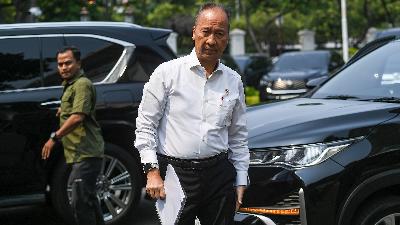
Interviews with Industry Minister Agus Gumiwang Kartasasmita and Sritex President Commissioner Iwan Setiawan Lukminto on the company’s bailout.

Liquidation over life insurer AJB Bumiputera 1912 caused financial disadvantages to hundreds of thousands of customers. Some 25,000 policy marketers became unemployed.

Prabowo Subianto will almost certainly choose Gibran Rakabuming Raka as his vice-presidential running mate. Jokowi supports a Prabowo-Gibran ticket.
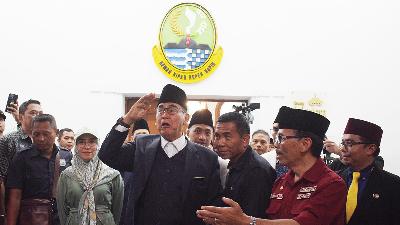
The police will charge Panji Gumilang with the crime of blasphemy. The government will likely take over the Al-Zaytun Islamic Boarding School.
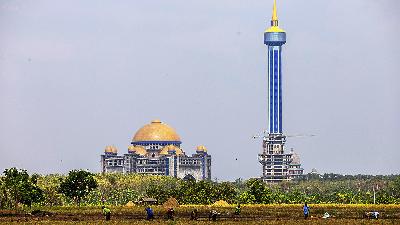
The State Intelligence Agency once worked with Panji Gumilang to fight the Indonesian Islamic State. The Al-Zaytun Islamic Boarding School often becomes a voter base for political parties.
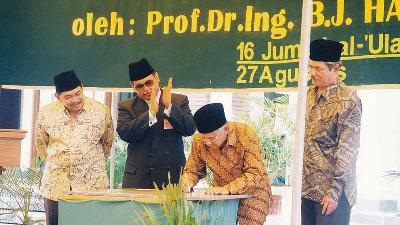
Al-Zaytun Islamic Boarding School and Panji Gumilang are often associated with a regional command of the Indonesian Islamic State (NII) insurgent group. His bank transactions reach into trillions of rupiah.

Readers' letter: from the satirical poetry to the AJB Bumiputera muddle.

Jambi Governor Zumi Zola is named suspect for allegedly receiving Rp6 billion in bribes.

A sting operation took place a week after Jambi Governor Zumi Zola signed an integrity pact with the Corruption Eradication Commission (KPK).

JAKA Irwanto and Boyamin Saiman raced to the Integrated Police Service Center of the Jakarta Police Department. On Thursday morning last week, the two men, who own Bumiputera 1912 Insurance policies, wanted to file a police report with the Crime Investigation Directorate. "We came early in the morning so that it could be processed quickly," Jaka told Tempo.
They had gone to the police to file a complaint against Firdaus Djaelani. The two policy holders charged that this commissioner at the Financial Services Authority (OJK) committed a crime by abusing his authority over Bumiputera Mutual Life Insurance (AJB). In the report, a copy of which was obtained by Tempo, Boyamin and Jaka questioned the decision made by Firdaus to appoint and establish Statutory Managers at AJB Bumiputera 1912.

Bumiputera's problems began with its status as a mutual, rather than a limited, company. With this kind of model, it has not been managed with sound insurance company principles. The management is weak and the company seems to function in an extremely complex way. For example, Bumiputera has a Members Representative Board, as well as a board of commissioners, to oversee the directors.
This mutual type of company has a long history. Boemi Poetra was established in 1912 to improve the welfare of teachers. In 1966, the name was changed to Asuransi Jiwa (Life Insurance) Bumiputera. The company grew rapidly and was once ranked among the 10 largest insurance companies in Indonesia. It has policyholders across the country, mostly outside cities.

IT was 2am. Januminro Bunsal, 54, still had not left the site of a peatland fire near Tumbang Nusa village in Pulang Pisau regency, Central Kalimantan. He and his team of volunteers were trying hard to control it. "He was with us night and day," said Gunawan, 54, a Tumbang Nusa villager, told Tempo two weeks ago.
The area of the blaze Januminro and his team was working on was not large compared to the total area razed in Central Kalimantan. Data from the environment and forestry ministries show at least 26,664 hectares of peatland in the province was torched between August to October this year. Januminro and team's fire spread over 500 hectares of land.

Bakrie Group to deposit US$50 million to lock up support for Bumi Plc. exit. Analysts doubt Bakrie's financial standing amid mounting debt.

One of Indonesia's business moguls, Hashim Djojohadikusumo, has joined Nathaniel Rothschild in an attempt to clear the board of London-listed Bumi Plc from the influence of Bakrie Group in a voting scheduled for next month.

London-listed coal miner Bumi Plc has launched a probe into irregularities at Bumi Resources and Berau Coal. This is yet another turn in a long-running dispute between old colleagues.

After Indonesia's biggest thermal coal exporter reported a first-half loss, shares in Bumi Resources collapsed to a three-year low, triggering much speculation.

Jumilahs school in West Lombok has succeeded in freeing 154 residents of her hamlet from illiteracy, spurring the people to secure work.

The National Police conducted Operation Kresna three years ago to investigate the network of the Islamic State of Indonesia (NII)’s Area 9 Command. Panji Gumilang, the imam (religious leader) of the movement, was the prime target. All the evidence had been gathered, but the operation ran into a wall when it reached higher levels of command. It is strongly suspected that the police were obstructed by political interest groups and the intelligence community.
Throughout its history, the radical NII movement were involved in operations run by the intelligence forces. Panji Gumilang was seen as a counterforce aimed at breaking up the remaining supporters of the rebel S.M. Kartosoewirjo, the first imam of the NII.
Through the Al-Zaytun Islamic Boarding School, Panji used a different stratagy: developing a center of education, all the while expanding the wings of the organization. He recruited members and raised funds through coercion. He would promise politicians to deliver votes just before elections. Some people claim Panji’s charm was hard to resist.
This is the story of a man with many faces: the revered leader of a religious boarding school, an imam of a movement targeted by police and a businessman with close relations to the intelligence community.

The National Police conducted Operation Kresna three years ago to investigate the network of the Islamic State of Indonesia (NII)’s Area 9 Command. Panji Gumilang, the imam (religious leader) of the movement, was the prime target. All the evidence had been gathered, but the operation ran into a wall when it reached higher levels of command. It is strongly suspected that the police were obstructed by political interest groups and the intelligence community.
Throughout its history, the radical NII movement were involved in operations run by the intelligence forces. Panji Gumilang was seen as a counterforce aimed at breaking up the remaining supporters of the rebel S.M. Kartosoewirjo, the first imam of the NII.
Through the Al-Zaytun Islamic Boarding School, Panji used a different stratagy: developing a center of education, all the while expanding the wings of the organization. He recruited members and raised funds through coercion. He would promise politicians to deliver votes just before elections. Some people claim Panji’s charm was hard to resist.
This is the story of a man with many faces: the revered leader of a religious boarding school, an imam of a movement targeted by police and a businessman with close relations to the intelligence community.

He collaborated with the Japanese to form Masyumi, rejecting all agreements with the Dutch.

Bumi Resources is surrounded by controversy. Being a money machine can be problematic.

BAKRIE GROUP
Losing Bumi
Bakrie relinquishes Bumi to Northstar Pacific. An agreement had to be reached because the Finance Minister asked that its share trading be opened on Monday this week.

Bumi Resources is selling its coal mine for Rp29 trillion. The company plans to become an energy giant.

Six months after the collapse of the World Trade Center, Americans are actively learning about Islam. In bookstores across the US, the Qur'an and poems by Jalaluddin Rumi are sought after. What is the American public attitude towards Muslims? The following reports were filed by TEMPO journalist Widjajanto who recently traveled to the United States.

PT Bumi Resources failed to buy back the shares sold to Jamsostek last year. Billions of rupiah that Jamsostek should have pocketed just evaporated. Jamsostek is now suspected to be behind Bumi’s acquisition of Arutmin.

There is currently much discussion about the work and concepts of the 13th century Persian Sufi Jalaluddin Rumi as it is felt his religion of love is relevant to the Indonesia of today.
Independent journalism needs public support. By subscribing to Tempo, you will contribute to our ongoing efforts to produce accurate, in-depth and reliable information. We believe that you and everyone else can make all the right decisions if you receive correct and complete information. For this reason, since its establishment on March 6, 1971, Tempo has been and will always be committed to hard-hitting investigative journalism. For the public and the Republic.